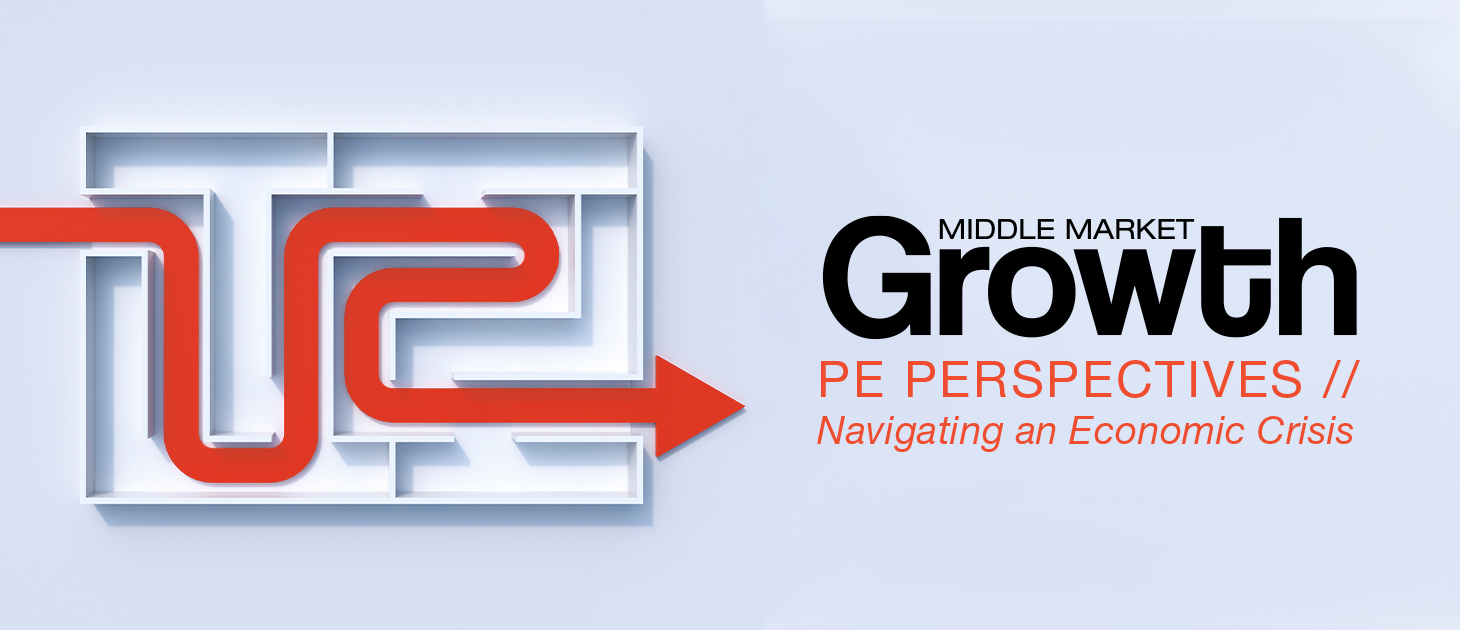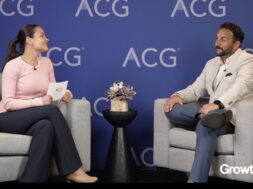Navigating an Economic Crisis: Q&A with HKW
Leaders from private equity firm HKW share how their firm is navigating fallout from the coronavirus and their view of the market.

Mike Foisy, Lead Operations Partner, HKW
Ted Kramer, President and CEO, HKW
Luke Phenicie, Lead Transaction Partner, HKW
Offices: Indianapolis and New York City
Industry focus: Business services, health and wellness
Investment criteria: $5 million to $30 million in EBITDA
Website: www.hkwinc.com
Middle Market Growth spoke with Mike, Ted and Luke by phone on March 23.
Q. How is HKW working with its portfolio companies amid the economic turmoil caused by the coronavirus?
Mike Foisy: We’ve set up a daily conversation about every company in our portfolio and the different issues that they’re having. We have three operating partners as part of HKW that work closely with our CEOs to help guide them through normal situations, but obviously we’re heightening the interaction with our CEOs during this time period.
Last week, we really focused on assessing the situation with our teams—what’s happening from a demand perspective and from a supply perspective. We’re making sure that our employees are safe and are able to continue doing their jobs. We implemented a lot of work-from-home programs and instituted procedures within our factories to ensure workers are protected. We’re making sure there’s testing and reviews before employees come to work, and that we have all the policies in place to eliminate any spread of the virus.



This week, we’ve been focused on liquidity for our businesses, particularly any that have been affected by shut-down orders that have spread across the country and now into Canada as well.
Ted Kramer: It’s been nice to see how fast HKW and and other private equity firms are reacting to help the companies they’re involved with, whether they’re small middle-market funds like us, smaller groups or even larger ones. We’re doing everything we can, all hands on deck, to make these companies as viable as possible and to try to maintain as many folks at these businesses as possible.
Q. How has deal sourcing been impacted?
TK: With everybody off the road, it’s hard to do deal sourcing meetings. The number of new opportunities coming is close to zero; it has effectively just stopped. For the processes that we’re already involved in, more and more are getting delayed or pushed. Ryan Grand, who leads our sourcing, is trying to do phone calls with our intermediaries and, to be honest, many of them just don’t have anything to talk about or aren’t interested in speaking as they worry about the same issues as most of us. I would expect activity to slowly pick back up, but it’s hard to say depending on where we are in this crisis.
In terms of deals in progress, we have one deal under letter of intent that we pushed out a couple of weeks, that was the only thing in the funnel. We did get an add-on closed right before.
Q. Have you seen valuations start to come down?
Luke Phenicie: It’s a little bit early to say how valuations will be impacted. The public markets usually lead this process and if you look back to the last cycle in 2008 or 2009, there’s usually a pretty large lag for private companies because it often takes a while for reality to set in for owners.
“We’re doing everything we can, all hands on deck, to make these companies as viable as possible and to try to maintain as many folks at these businesses as possible.”
Ted Kramer
President & CEO, HKW
Going back to the last cycle, everyone knew in 2009 that it was a great time to buy, but a lot of high-quality businesses waited to sell—they don’t necessarily want to trade because they know they won’t get an appropriate valuation. That same thing is probably going to happen during this cycle, it’s just going to take a little bit of time. It also depends on how long this downturn lasts. If it’s quick, you might not see the pressure on valuations as much as if it extends throughout the year.
Q. How do you expect this crisis to impact dealmaking over the next 12 months?
LP: Coming into this year, everyone in the deal business expected the first half to be high volume, knowing we were going into an election cycle in the second half of the year. I think a lot of folks thought activity in the second half would be down in anticipation of that. If this crisis lasts at least through summer, and then you’ve got the election this fall, it’s going to be a very tough time for the M&A market this year.
Q. How does the investment climate right now compare to what it looked like in the early days of the 2007-09 financial crisis?
LP: One of biggest differences is just how quickly this came on. We were at least 10 years out from the last cycle, so a lot of people were looking around knowing that a recession was probably coming down the pike at some point, but no one really knew what would cause it. When you looked at economic data, everything was pretty good.
Now, we’re going to have a couple of quarters with negative GDP. Not only has the stock market corrected faster than any of us have ever seen in our lifetimes, a recession is coming really quickly as well. The speed at which it’s all happened is vastly different from the last recession.
TK: I also think the panic is a lot different this time. I’m not here to say whether that’s right or wrong, but the panic across the world has just caused us all to stop.
MF: The last recession was a demand situation. At least from an operational perspective, you now have to focus on safety protocols, dealing with government-mandated shutdowns. That requires a more immediate reaction and the need for us to over-communicate on an hour-by-hour basis. Last time, we had some time to develop recession plans and to adjust our cost structure.
LP: This is, by definition, systematic risk. For example, one of our companies has suppliers in China and Malaysia, as well as in Europe and in the U.S. Usually, that would indicate a pretty diversified supply chain, but when you have this systematic risk where governments globally are telling their populations to stay inside and not go to work, it’s shutting down everything. In the 2008-09 recession, a lot of that was brought on by U.S. housing and it became a financial-related crisis. This is something different than anything any of us has ever seen before.
TK: That’s why it’ll be harder to predict how fast the economy will or will not come back. You can argue both sides: a “V-shaped” quick recovery, or a slow and long one. Who knows, having not gone through this in our lifetime.
Read how other middle-market private equity firms are navigating the economic crisis.


